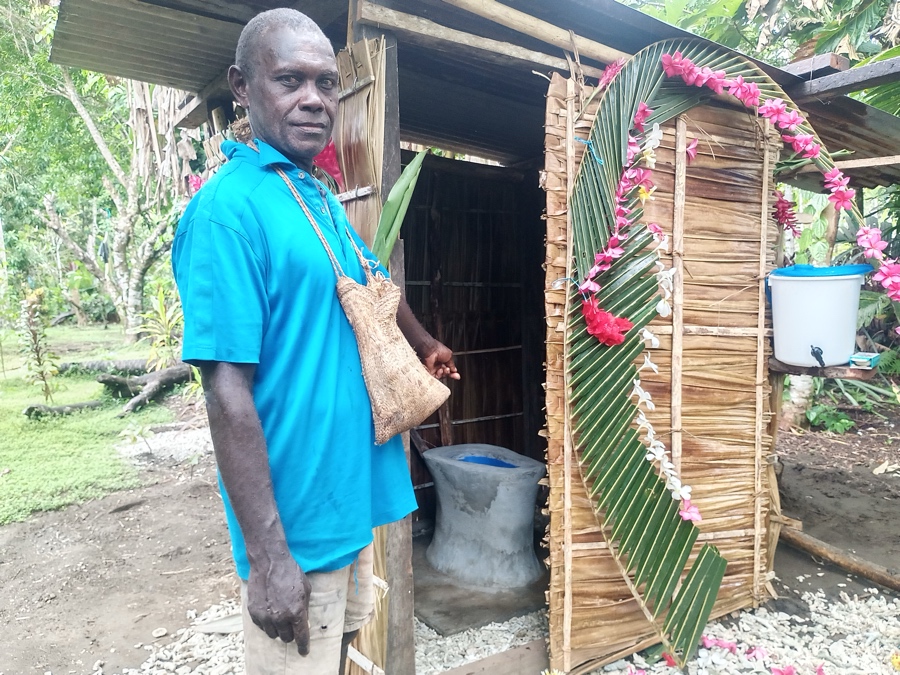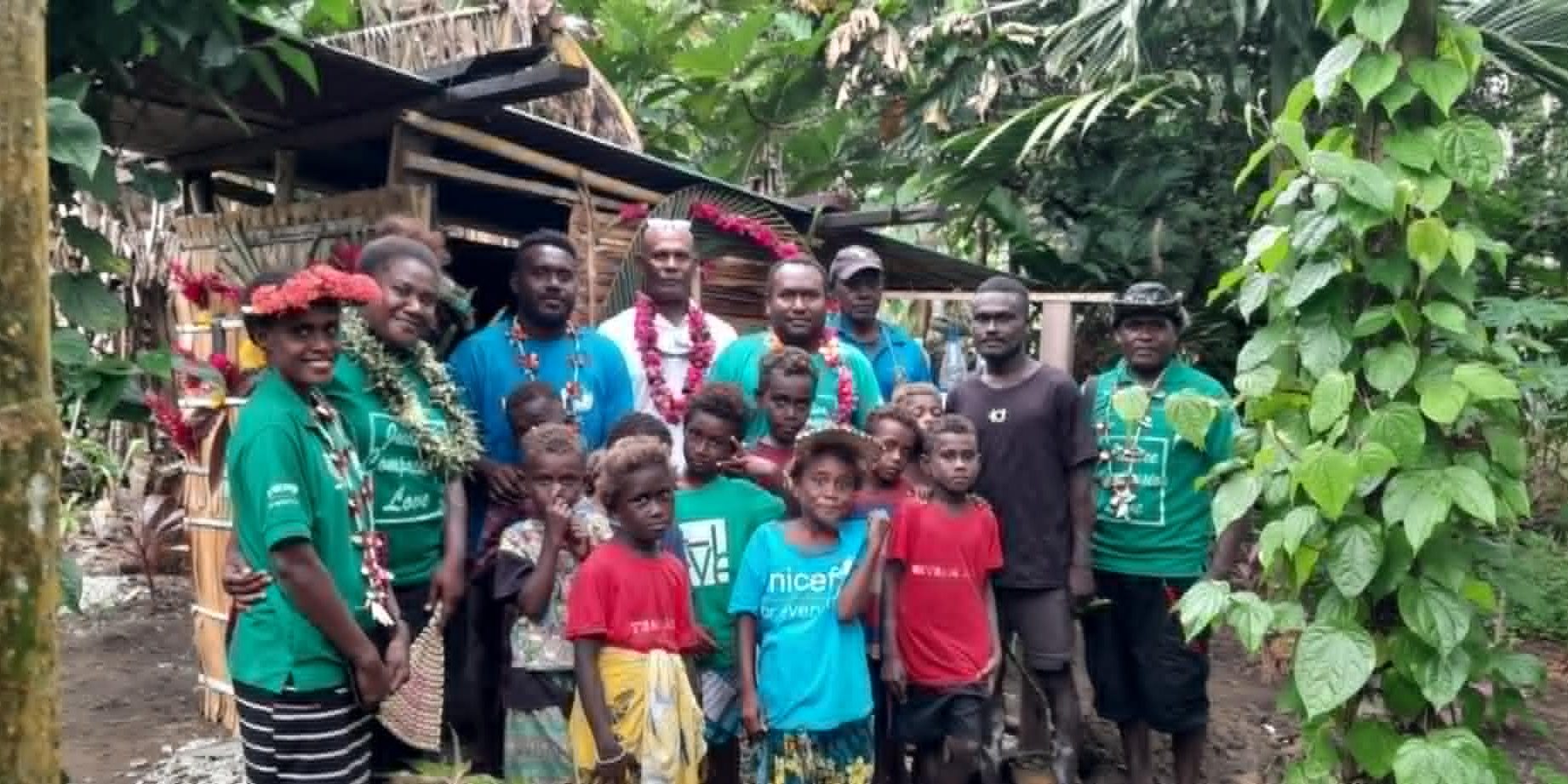SEVENTY-THREE year old Ronald Bula is from Niuole community in Central Rannogah, Western Province.
For months he had been pushing to achieve the ‘No Open Defecation’ (NOD) status of his community.
On December 18, 2024 he was amongst the community members who cheerfully celebrated this achievement.
The father of eight children was extremely excited and happy to have played a key role in achieving the status.
NOD is a campaign or initiative aimed at eradicating the practice of defecating in open spaces, such as fields, forests, rivers, or streets, rather than using proper sanitation facilities like toilets.
Niuole community was one of eight communities in Central Rannogah being declared NOD this year.
This was made possible through the National Sanitation Sustainability Plan (NSSP) Phase 2 project currently implemented by the Adventist Development and Relief Agency (ADRA).
The NSSP project was funded by DFAT through UNICEF.
It targeted communities to ensure they are able to build sanitation facilities and ceased the practise of using the sea and bushes for open defecation.

The project has already made a significant impact on communities across Central Rannogah Island, with more communities expected to achieve NOD status next year. During the NOD celebration at Niuole, Mr. Bula was recognized as a standout participant.
He was the first in the community to complete his sanitation project, even before Niuole was officially declared NOD.
“Here in Niuole, some community members have built permanent toilets, but for the sato pan toilet under this project, I was the first to complete it.
“I am happy because this project has brought changes which stopped me and my family from using the sea and bush for defecation,” he said.
Mr. Bula reflected on how the project has transformed his habits and improved his community’s health and environment.
“To be honest, for the last 40 years since I have lived here, I used the sea and bush for open defecation, which I now realized as unhealthy for our community.
“But this project has changed me. Since I built my toilet, I no longer use the sea or bushes, and all my family and grandchildren use this new facility.”
He also highlighted the challenges of open defecation before the project.
“When we didn’t have a toilet, it was very difficult. The seashore is far, and people were discouraged from using the bush or seashore for defecation.
“Now, we really enjoy having this toilet and thank ADRA, UNICEF, and RWASH for their support in making this project possible,” Mr. Bula said.
Mr. Bula expressed his gratitude to ADRA for initiating and supporting the project. “Now we can use the sea for fishing because we’ve stopped using it for defecation. Before, fishing was unhealthy because we used the seashore as a toilet.
“But now, with our community’s new toilets, our seashore is clean, and we can safely fish again,” he added.
ADRA, through RWASH and with support from UNICEF, continues to work with communities in Rannogah to help more areas achieve NOD status next year.
The NSSP focuses on scaling up sustainable sanitation services at both provincial and national levels and improving hygiene behaviors.
The initiative employs a community engagement approach using Community-Led Total Sanitation (CLTS) as the entry point.
This is complemented by post-ODF follow-up visits, sanitation marketing, and communication techniques to raise awareness and establish sustainable sanitation practices in the community.
The National Rural WASH Policy, which prohibits subsidies for household sanitation, was approved by the Cabinet of Solomon Islands to guide RWASH activities.
This policy, under the Ministry of Health and Medical Services, aims to improve community access to water supply and basic sanitation.
The strategy includes lessons learned from past projects in the Solomon Islands and other countries.
The CLTS methodology was chosen as the primary tool to create demand and implement sustainable sanitation.
The MHMS initiated the National Rural Water, Sanitation & Hygiene Strategy 2015-2020, setting a target for 100% of communities in the Solomon Islands to adopt the CLTS approach by 2020 and for 80% to achieve NOD status by 2024.
This initiative resulted in the development of the Solomon Islands National Sanitation Sustainability Plan (NSSP), which continues to guide the country toward improved sanitation and hygiene practices.
– ADRA









